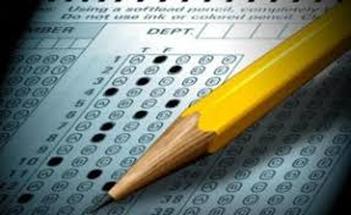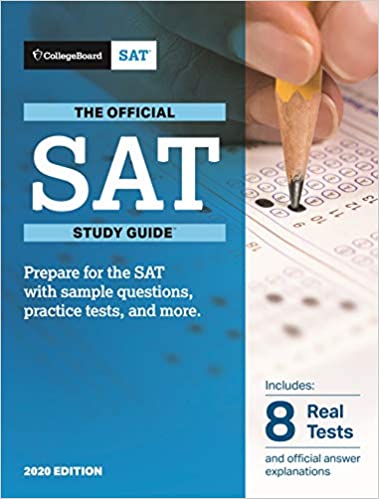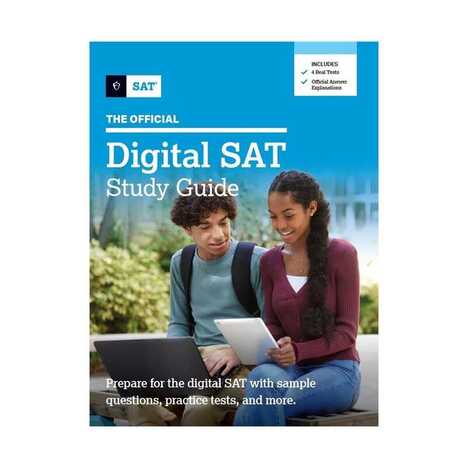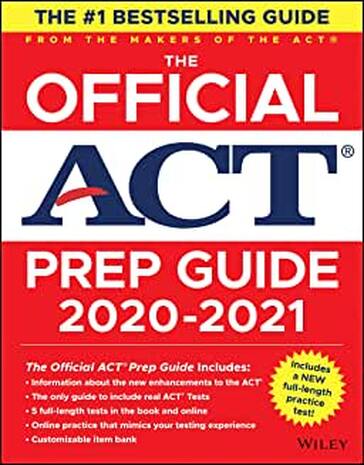2024 SAT Test Dates! August 24 / Oct 5 / Nov 2 / Dec 7
What is the SAT?
The SAT is a standardized college entrance exam. In the past, it was an acronym for "Scholastic Aptitude Test," but now it is just copyrighted as the "SAT."
The SAT is different from the ACT in several ways. It is considered to be more difficult than the ACT by many, but this is simply because it requires you to THINK critically and APPLY the concepts learned in high school. "Can you use your knowledge to answer this, or not?" is the focus.
The purpose of the SAT is to predict how well a student will do in college. Colleges use the SAT (and ACT) to judge students more effectively for acceptance, and the required minimum scores can be different for each university.
The SAT consists of several parts: reading, writing/language, math, and an experimental/ungraded section. UPDATE: The SAT is now the "digital SAT." It will be completed on computer as of March 2024 in the United States. It now only has 2 sections: reading/writing and math. Reading/writing/grammar is all combined. The two math sections on the previous test are now combined, giving students the option of using a calculator on the entire math portion. The new digital SAT is adaptive - all students see the same questions in the first module, but the second module is based on how well they did on the first - easier if they didn't do well, but harder if they did.
The SAT is a standardized college entrance exam. In the past, it was an acronym for "Scholastic Aptitude Test," but now it is just copyrighted as the "SAT."
The SAT is different from the ACT in several ways. It is considered to be more difficult than the ACT by many, but this is simply because it requires you to THINK critically and APPLY the concepts learned in high school. "Can you use your knowledge to answer this, or not?" is the focus.
The purpose of the SAT is to predict how well a student will do in college. Colleges use the SAT (and ACT) to judge students more effectively for acceptance, and the required minimum scores can be different for each university.
The SAT consists of several parts: reading, writing/language, math, and an experimental/ungraded section. UPDATE: The SAT is now the "digital SAT." It will be completed on computer as of March 2024 in the United States. It now only has 2 sections: reading/writing and math. Reading/writing/grammar is all combined. The two math sections on the previous test are now combined, giving students the option of using a calculator on the entire math portion. The new digital SAT is adaptive - all students see the same questions in the first module, but the second module is based on how well they did on the first - easier if they didn't do well, but harder if they did.
What is the ACT?
The ACT is a standardized college entrance exam. In the past, it was an acronym for "American College Testing." but now it is just copyrighted as the "ACT."
The ACT is different from the SAT in several ways. It is considered to be less difficult than the SAT by many, but this is really a matter of opinion. Some consider it more difficult because it involves science and a few extra math concepts. It is true that the ACT contains questions that are more similar to what your child has been exposed to in high school; it requires a bit less critical thinking with a more direct approach. "Do you know this or not?" is the focus.
The purpose of the ACT is to gauge how much a student learned in high school. Colleges use the ACT (and SAT) to judge students more effectively for acceptance, and the required minimum scores can be different for each university. YES, almost every college can accept either test. It is often assumed that they need both, or that the SAT is the only one that really matters. Check with the colleges of interest to be sure.
The ACT consists of several parts: English, reading, math, science (!!!), and an experimental/ungraded section. The ACT now has a digital version too, but there is still an option to take the paper test.
The ACT is a standardized college entrance exam. In the past, it was an acronym for "American College Testing." but now it is just copyrighted as the "ACT."
The ACT is different from the SAT in several ways. It is considered to be less difficult than the SAT by many, but this is really a matter of opinion. Some consider it more difficult because it involves science and a few extra math concepts. It is true that the ACT contains questions that are more similar to what your child has been exposed to in high school; it requires a bit less critical thinking with a more direct approach. "Do you know this or not?" is the focus.
The purpose of the ACT is to gauge how much a student learned in high school. Colleges use the ACT (and SAT) to judge students more effectively for acceptance, and the required minimum scores can be different for each university. YES, almost every college can accept either test. It is often assumed that they need both, or that the SAT is the only one that really matters. Check with the colleges of interest to be sure.
The ACT consists of several parts: English, reading, math, science (!!!), and an experimental/ungraded section. The ACT now has a digital version too, but there is still an option to take the paper test.
When should my child take the SAT and ACT?
It is recommended students take the SAT and ACT at least once during their Junior (11th) year, if not twice. This allows the student to become familiar with the tests, gauging the areas they need to focus on to increase their scores. It is crucial to start preparing during the Junior year. These tests are comprehensive and require a lot of knowledge to do well. Any weak areas will need to be dealt with; this takes time! As Seniors (12th), many students take them twice: once in the late summer, or early fall, and once in the early/late winter if they didn't reach their desired score. Note: some colleges require final scores earlier than others, so keep this in mind. These tests can be taken multiple times, as the top score is what will be released to colleges later. Plan ahead! Students should have a prep plan in place several months before taking either of these tests. These tests can make or break the possibility of acceptance into the college of choice or receiving a scholarship. They should be taken seriously...
***Click below for SAT/ACT test registration and to see updated test dates for planning.
It is recommended students take the SAT and ACT at least once during their Junior (11th) year, if not twice. This allows the student to become familiar with the tests, gauging the areas they need to focus on to increase their scores. It is crucial to start preparing during the Junior year. These tests are comprehensive and require a lot of knowledge to do well. Any weak areas will need to be dealt with; this takes time! As Seniors (12th), many students take them twice: once in the late summer, or early fall, and once in the early/late winter if they didn't reach their desired score. Note: some colleges require final scores earlier than others, so keep this in mind. These tests can be taken multiple times, as the top score is what will be released to colleges later. Plan ahead! Students should have a prep plan in place several months before taking either of these tests. These tests can make or break the possibility of acceptance into the college of choice or receiving a scholarship. They should be taken seriously...
***Click below for SAT/ACT test registration and to see updated test dates for planning.
Recommended Study Guides
These are the "official" prep/study guides for the SAT and ACT; therefore, they are highly recommended for your child's test prep. They contain official practice tests and answer explanations. Study guides from other companies are a potential addition to the official guides and useful when all "official" questions have been completed, but their questions can be different and do not undergo the extreme scrutiny that the "official" practice questions do.
2020 Official SAT Study Guide:
https://amzn.to/3RBujwJ
New 2023 Official Digital SAT Study Guide:
https://amzn.to/3vfFow0
2020-2021 Official ACT Prep Guide: ISBN-13: 978-1119685760 (newer versions now available)
These texts are required for the group sessions and private tutoring sessions through Trex Tutoring (be sure to confirm the edition year needed). It is important that each student has their own study manual to study, annotate, mark up, flag, fold, and "coffee ring" as much as they wish. Having the same text provides the ability to give assignments between sessions and keeps everyone on the same track. (Note: some of these study guides are available online for free. However, during sessions specific page and problem numbers will be used as examples for practice. The student is expected to turn directly to it for reference. The online versions often do not contain page numbers that match, and it would be very inconvenient to the student to not have the physical manual.)
Amazon.com continues to be the least expensive method of purchasing these study manuals: usually $10-31 each.
Barnes & Noble: $30-39 each.
2020 Official SAT Study Guide:
https://amzn.to/3RBujwJ
New 2023 Official Digital SAT Study Guide:
https://amzn.to/3vfFow0
2020-2021 Official ACT Prep Guide: ISBN-13: 978-1119685760 (newer versions now available)
These texts are required for the group sessions and private tutoring sessions through Trex Tutoring (be sure to confirm the edition year needed). It is important that each student has their own study manual to study, annotate, mark up, flag, fold, and "coffee ring" as much as they wish. Having the same text provides the ability to give assignments between sessions and keeps everyone on the same track. (Note: some of these study guides are available online for free. However, during sessions specific page and problem numbers will be used as examples for practice. The student is expected to turn directly to it for reference. The online versions often do not contain page numbers that match, and it would be very inconvenient to the student to not have the physical manual.)
Amazon.com continues to be the least expensive method of purchasing these study manuals: usually $10-31 each.
Barnes & Noble: $30-39 each.
Private or Group Tutoring?
*The choice of whether to utilize private tutoring or group tutoring for SAT/ACT prep is often asked. Check with your child to see which one appeals the most to them. Then discuss the advantages and disadvantages of each. Private tutoring can give them 100% personal attention, focusing on their needs and questions only. However, group tutoring tends to be more motivational to many students, having the added "push" of others around them (or in their virtual classroom); seeing that others are going through similar struggles can help.
*Group sessions are more comprehensive in approach, covering all the basics of strategies and concepts in an organized flow from session to session. Private tutoring will include those too, but will cater to the student only, focusing more on the topics of issue.
*In the end, it often has to do with the student's comfort level. Group sessions are very relaxed with no pressure or unwanted attention placed on the student; therefore, shy students need not worry at all. Group attendees can register with a friend from school, which can reduce any anxiety he/she may have.
*Price may be a factor too. Private tutoring is more expensive than group tutoring. Some students choose to do the group sessions for the background and practice, and later some focused private tutoring sessions for lingering problem areas if necessary.
*Buying your child a massive 1300 page SAT or ACT prep manual and then saying, "Here you go. Go to it," is very intimidating and bewildering to most students; many will barely crack the binding. A helpful, guiding hand from a tutor can reassure them in their preparation activities. The task will be broken down into organized topics and the fear will subside.
*Either way, prepping for the SAT/ACT through tutoring is very helpful in increasing both confidence and scores.
*Group sessions are more comprehensive in approach, covering all the basics of strategies and concepts in an organized flow from session to session. Private tutoring will include those too, but will cater to the student only, focusing more on the topics of issue.
*In the end, it often has to do with the student's comfort level. Group sessions are very relaxed with no pressure or unwanted attention placed on the student; therefore, shy students need not worry at all. Group attendees can register with a friend from school, which can reduce any anxiety he/she may have.
*Price may be a factor too. Private tutoring is more expensive than group tutoring. Some students choose to do the group sessions for the background and practice, and later some focused private tutoring sessions for lingering problem areas if necessary.
*Buying your child a massive 1300 page SAT or ACT prep manual and then saying, "Here you go. Go to it," is very intimidating and bewildering to most students; many will barely crack the binding. A helpful, guiding hand from a tutor can reassure them in their preparation activities. The task will be broken down into organized topics and the fear will subside.
*Either way, prepping for the SAT/ACT through tutoring is very helpful in increasing both confidence and scores.







